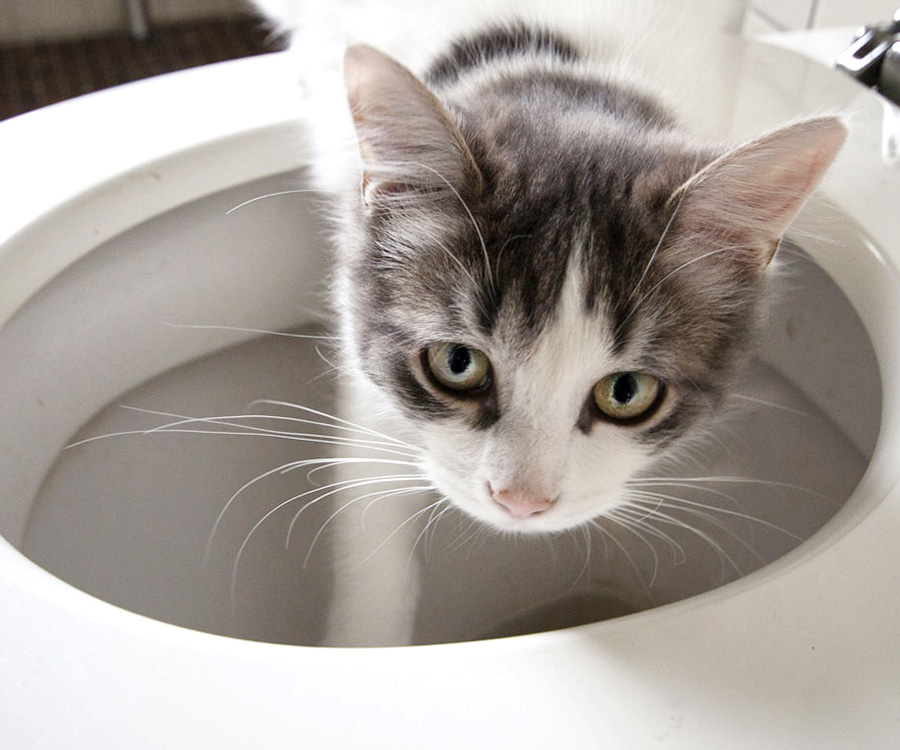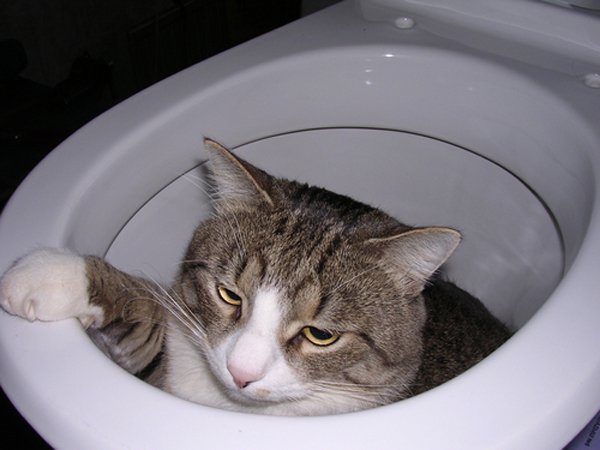Reasons Flushing Cat Poop Down Your Toilet Is Bad - Tips for Correct Handling
Check Us OutThe publisher is making a few great points on the subject of Don’t flush cat feces down the toilet in general in the content following next.

Introduction
As cat proprietors, it's necessary to be mindful of exactly how we dispose of our feline buddies' waste. While it might seem hassle-free to purge feline poop down the toilet, this practice can have harmful repercussions for both the environment and human health.
Alternatives to Flushing
Thankfully, there are much safer and much more responsible ways to dispose of pet cat poop. Take into consideration the adhering to choices:
1. Scoop and Dispose in Trash
The most typical method of disposing of pet cat poop is to scoop it into an eco-friendly bag and throw it in the garbage. Be sure to utilize a dedicated trash inside story and deal with the waste without delay.
2. Use Biodegradable Litter
Choose eco-friendly pet cat litter made from materials such as corn or wheat. These trashes are eco-friendly and can be securely dealt with in the trash.
3. Bury in the Yard
If you have a lawn, think about hiding feline waste in a marked location far from veggie yards and water sources. Make sure to dig deep enough to stop contamination of groundwater.
4. Set Up a Pet Waste Disposal System
Buy a pet waste disposal system especially created for feline waste. These systems utilize enzymes to break down the waste, lowering smell and ecological effect.
Wellness Risks
Along with ecological worries, flushing feline waste can also present health and wellness risks to human beings. Feline feces might include Toxoplasma gondii, a parasite that can trigger toxoplasmosis-- a potentially extreme disease, specifically for expecting females and individuals with damaged immune systems.
Environmental Impact
Purging feline poop presents hazardous pathogens and bloodsuckers into the water supply, presenting a substantial risk to water ecological communities. These contaminants can adversely impact marine life and compromise water high quality.
Final thought
Accountable pet dog possession extends beyond providing food and shelter-- it also involves correct waste monitoring. By avoiding purging feline poop down the bathroom and choosing alternate disposal methods, we can minimize our ecological impact and safeguard human health and wellness.
Why Can’t I Flush Cat Poop?
It Spreads a Parasite
Cats are frequently infected with a parasite called toxoplasma gondii. The parasite causes an infection called toxoplasmosis. It is usually harmless to cats. The parasite only uses cat poop as a host for its eggs. Otherwise, the cat’s immune system usually keeps the infection at low enough levels to maintain its own health. But it does not stop the develop of eggs. These eggs are tiny and surprisingly tough. They may survive for a year before they begin to grow. But that’s the problem.
Our wastewater system is not designed to deal with toxoplasmosis eggs. Instead, most eggs will flush from your toilet into sewers and wastewater management plants. After the sewage is treated for many other harmful things in it, it is typically released into local rivers, lakes, or oceans. Here, the toxoplasmosis eggs can find new hosts, including starfish, crabs, otters, and many other wildlife. For many, this is a significant risk to their health. Toxoplasmosis can also end up infecting water sources that are important for agriculture, which means our deer, pigs, and sheep can get infected too.
Is There Risk to Humans?
There can be a risk to human life from flushing cat poop down the toilet. If you do so, the parasites from your cat’s poop can end up in shellfish, game animals, or livestock. If this meat is then served raw or undercooked, the people who eat it can get sick.
In fact, according to the CDC, 40 million people in the United States are infected with toxoplasma gondii. They get it from exposure to infected seafood, or from some kind of cat poop contamination, like drinking from a stream that is contaminated or touching anything that has come into contact with cat poop. That includes just cleaning a cat litter box.
Most people who get infected with these parasites will not develop any symptoms. However, for pregnant women or for those with compromised immune systems, the parasite can cause severe health problems.
How to Handle Cat Poop
The best way to handle cat poop is actually to clean the box more often. The eggs that the parasite sheds will not become active until one to five days after the cat poops. That means that if you clean daily, you’re much less likely to come into direct contact with infectious eggs.
That said, always dispose of cat poop in the garbage and not down the toilet. Wash your hands before and after you clean the litter box, and bring the bag of poop right outside to your garbage bins.
https://trenchlesssolutionsusa.com/why-cant-i-flush-cat-poop/

I was made aware of that article on How to Dispose of Cat Poop and Litter Without Plastic Bags from a friend on a different web property. In case you liked our post kindly remember to share it. I recognize the value of reading our article about Don’t flush cat feces down the toilet.
Details Here